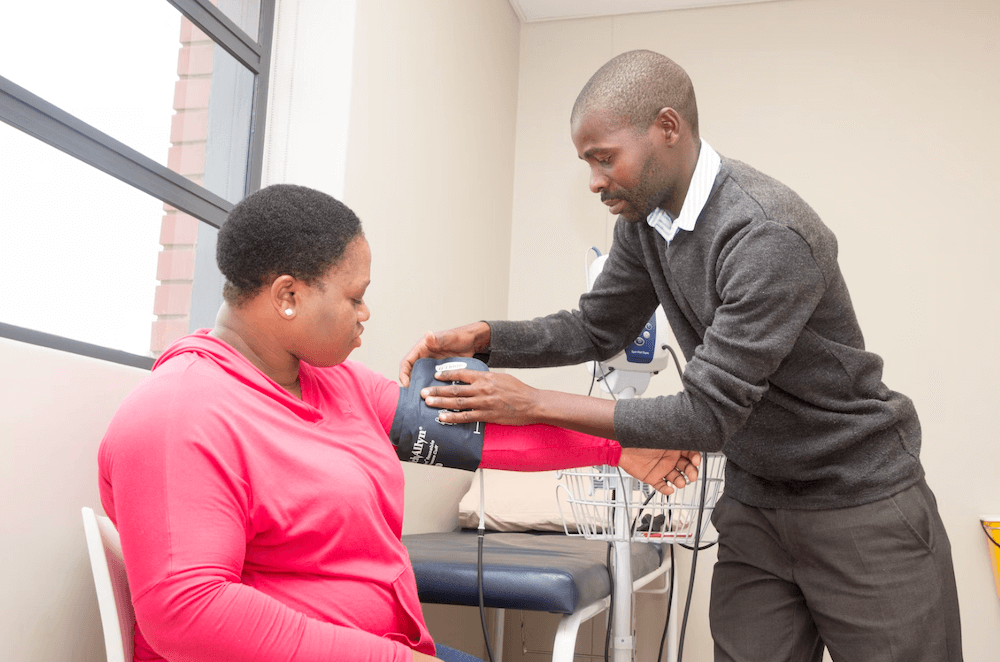
Herzing University

Classes from Herzing University
DMOA - Diploma in Medical Office Administration

The Diploma in Medical Office Administration is designed to equip students with the essential skills and academic knowledge required for entry-level office positions in the healthcare industry. Graduates of this program will be prepared for various career opportunities in medical offices, clinical settings, hospitals, long-term care facilities, and other healthcare office environments.
Program Outcomes:
Upon completion of this program, the student should be able to:
- Data Management: Create and enter data into different healthcare documents.
- Legal Concepts Application: Apply legal concepts to medical practice.
- Professionalism: Employ professionalism in healthcare office settings.
- Billing and Reimbursement Processes: Demonstrate understanding and proficiency in billing and reimbursement processes.
- Disease and Treatment Knowledge: Explain various disease and treatment processes.
Program Content:
A minimum of 24.00 semester credit hours is required for graduation. The program curriculum covers a range of topics to ensure students are well-prepared for the responsibilities associated with medical office administration.
DMA - Diploma in Medical Assisting

The Diploma in Medical Assisting is designed to provide students with a combination of didactic and hands-on learning experiences, preparing them for entry-level positions as medical assistants. The program covers both clinical and administrative aspects of medical assisting, enabling graduates to work competently in various healthcare settings. Students will gain proficiency in medical terminology, anatomy and physiology, pharmacology, pathology, ethics, professionalism, medical insurance, electronic medical records, clinical procedures, laboratory procedures, and patient privacy. Successful completion of the program will also prepare students to sit for the Certified Clinical Medical Assistant (CCMA) exam.
Program Outcomes:
Upon completion of this program, students should be able to:
- Clinical Competencies: Demonstrate proficiency in clinical competencies relevant to medical assisting.
- Laboratory Competencies: Demonstrate proficiency in laboratory competencies associated with medical assisting.
- Administrative Duties: Perform all necessary administrative duties for a medical office.
- Ethical and Legal Compliance: Adhere to ethical and legal boundaries within the scope of practice for medical assistants.
- Professional Behavior: Demonstrate professional behavior within a medical office setting.
- Credentialing Exam Preparation: Utilize test-taking skills along with knowledge gained in medical assisting to successfully complete the credentialing exam (CCMA).
Program Content:
A minimum of 24.00 semester credit hours is required for graduation. The program curriculum covers a comprehensive range of topics, ensuring that students acquire the skills and knowledge necessary for success in the field of medical assisting.
ASMC- Associate of Science in Medical Coding

The Associate of Science/Associate of Applied Science in Medical Coding program aims to provide students with a comprehensive understanding of anatomy, physiology, disease processes, and medical terminology. Students will acquire the knowledge and skills needed to analyze medical records and assign codes for diagnoses and procedures, incorporating both basic and advanced coding methods. The program emphasizes the importance of patient privacy and instills principles of professional and ethical conduct. Graduates are prepared for entry-level positions as medical coders in various healthcare settings, including hospitals, clinics, and physician’s offices.
Program Outcomes:
Upon completion of this program, students should be able to:
- Fundamental Understanding: Build a fundamental understanding of medical terminology, disease processes, anatomy and physiology, and pharmacology relevant to medical coding.
- Coding Proficiency: Examine medical documentation to assign appropriate basic and advanced coding using the relevant coding systems (CPT, ICD-10 CM/PCS, HCPCS), conventions, guidelines, and instructional notes.
- Billing and Reimbursement: Understand medical billing and reimbursement methodologies related to insurance and billing guidelines.
- Principles of Patient Privacy: Demonstrate an understanding of the principles of patient privacy, healthcare laws and regulations, and the importance of professionalism and ethical conduct in the healthcare industry.
Program Content:
A minimum of 60.00 semester credit hours is required for graduation. The program covers a broad range of topics, including medical terminology, coding methodologies, billing and reimbursement, and ethical considerations in healthcare. The curriculum is designed to equip students with the skills and knowledge necessary for a successful career in medical coding.
ASMOA - Associate of Science in Medical Office Administration

The Associate of Science/Associate of Applied Science in Medical Office Administration program is tailored to equip students with the essential skills and academic knowledge required for entry-level office positions in the healthcare industry. Graduates of this program may pursue career opportunities in medical offices or clinics, hospitals, long-term care facilities, and various other healthcare office settings. The curriculum includes a comprehensive general education component, preparing students for future career advancement.
Program Outcomes:
Upon completion of this program, students should be able to:
- Data Management: Create and enter data into different healthcare documents.
- Legal Concepts: Apply legal concepts to medical practice.
- Professionalism: Employ professionalism in healthcare office settings.
- Billing and Reimbursement: Demonstrate understanding of billing and reimbursement processes.
- Disease and Treatment Processes: Explain various disease and treatment processes.
Program Content:
A minimum of 60.00 semester credit hours is required for graduation. The program covers a range of topics, including data management, legal aspects of medical practice, professionalism in healthcare settings, and an understanding of billing and reimbursement processes. The curriculum is designed to provide students with a solid foundation for success in medical office administration.
ASHHS - Associate of Science in Health and Human Services

The Associate of Science in Health and Human Services program at Herzing University is designed to prepare students with an interdisciplinary knowledge base. The program focuses on prevention, intervention, theory, and maintenance in practice with individuals, families, groups, organizations, and communities. This online program provides foundational knowledge and skills for entry-level positions in public and private health and human services agencies and organizations. Successful completion of this program makes students eligible to pursue further studies in the Bachelor of Science in Health and Human Services.
Program Outcomes:
Upon completion of this program, students should be able to:
- Understand Human Services Delivery: Gain knowledge of the history and current human services delivery.
- Apply Knowledge and Theory: Apply knowledge and theory to multiple levels of human systems.
- Integrate Models to Populations Served: Demonstrate understanding and integration of models for populations served.
- Apply Policy to Practice: Exhibit how to apply policy to practice.
- Information Management Skills: Build skills in information management.
- Ethical and Legal Standards: Adopt ethical and legal standards found in human services.
- Develop Interpersonal Skills: Engage in genuine interpersonal skills.
Program Content:
A minimum of 60.00 semester credit hours is required for graduation. The program covers a comprehensive curriculum focusing on health and human services, including history, theory, policy, information management, ethics, and interpersonal skills. The coursework prepares students for entry-level positions in health and human services agencies and provides a foundation for further studies in the field.
ASHCA- Associate of Science in Healthcare Administration

This program is designed to equip students with a foundational understanding of the healthcare environment, providing the knowledge necessary for entry-level administrative positions in healthcare. Many students pursue this associate degree after completing a certificate or diploma program in a healthcare discipline. For those who haven't fulfilled all the requirements of a healthcare program, individual healthcare courses from Herzing University's healthcare programs can be taken to complete the coursework.
Program Outcomes:
Upon successful completion of the program, students should be able to:
-
Articulate Theories and Principles of Health Care Management: Express theories and principles relevant to health care management.
-
Identify Unique Characteristics of Health Care Operations and Policy: Recognize the distinctive features of health care operations and policy.
-
Understand Implications of Privacy and Conflict in Healthcare Environment: Comprehend the implications of privacy and conflict within the healthcare environment.
Program Content:
A minimum of 60.00 semester credit hours, inclusive of transfer credits, is required for graduation. The curriculum covers essential aspects of healthcare administration, preparing students for entry-level administrative roles in the healthcare sector. The program integrates theories and principles of healthcare management, explores the unique characteristics of healthcare operations and policy, and addresses the implications of privacy and conflict in the healthcare environment.
ASHIM- Associate of Science in Health Information Management

This CAHIIM-accredited program is designed to prepare students with the essential skills and knowledge needed in the health information management (HIM) field for entry-level technical positions. Graduates are equipped to work in various health-related settings, including hospitals, clinics, long-term care facilities, consulting firms, government agencies, insurance companies, and software vendors. HIM professionals play a crucial role in planning, collecting, aggregating, analyzing, and disseminating individual patient and aggregate clinical data. The program focuses on developing entry-level skills in these areas.
Program Outcomes:
Upon successful completion of this program, students should be able to:
-
Abstract, Analyze, and Manage Healthcare Data: Follow federal and industry-standard documentation guidelines to abstract, analyze, and manage healthcare data.
-
Apply Medico-Legal Knowledge: Apply medico-legal knowledge to protected health information for authorization, disclosure, and security.
-
Demonstrate Knowledge of Databases and Electronic Health Records: Abstract and analyze clinical data to identify trends using industry-standard databases and electronic health records.
-
Apply Healthcare Reimbursement Revenue Cycle Knowledge: Apply knowledge of the healthcare reimbursement revenue cycle.
-
Ensure Compliance with Regulations: Apply current regulations to ensure compliance with accreditation, licensure, and certification standards, including established coding guidelines supported by clinical documentation improvement.
-
Define and Articulate Leadership Roles and Ethical Issues: Define and articulate leadership roles, organizational structure, operational processes, and ethical issues impacting HIM.
Program Content:
A minimum of 63.00 semester credit hours is required for graduation. The program covers a comprehensive curriculum focusing on HIM, including healthcare data management, medico-legal aspects, electronic health records, healthcare reimbursement, regulatory compliance, and leadership roles. The coursework prepares students for entry-level roles in the health information management field.
ASMAS - Associate of Science in Medical Assisting Services

The Associate of Science/Associate of Applied Science in Medical Assisting Services program is designed to introduce students to the overall operation of a physician’s office. Students undergo training to assist physicians in the examination room, perform routine laboratory procedures, and handle various administrative functions such as financial records, correspondence, and insurance forms. A distinctive feature of this program is that students are prepared for and can sit for the Medical Assisting Certification Exam during their program, enhancing their employment opportunities (though it is not a state-specific requirement).
Program Outcomes:
Upon completion of this program, students should be able to:
- Clinical Assisting and Laboratory Procedures: Perform clinical assisting and laboratory procedures to support healthcare delivery.
- Administrative Duties: Perform all administrative duties required for the efficient functioning of a medical office.
- Application of Legal Concepts: Apply legal concepts relevant to medical practice, ensuring compliance with regulations.
- Professional Communication: Communicate professionally with patients, coworkers, and healthcare providers.
- Credentialing Exam Preparation: Utilize test-taking skills and apply medical assisting knowledge to successfully complete the credentialing exam.
Program Content:
A minimum of 60.00 semester credit hours is required for graduation. The program covers a range of topics, including clinical assisting, laboratory procedures, administrative duties, legal concepts in healthcare, and effective communication. The curriculum is designed to equip students with the skills and knowledge necessary for a successful career in medical assisting.
DIBCS - Diploma in Insurance Billing and Coding Specialist

The Diploma in Insurance Billing and Coding Specialist is designed to equip students with a comprehensive understanding of medical records, along with extensive training in anatomy, physiology, disease processes, and medical terminology. The program aims to provide the knowledge and skills needed to analyze medical records and assign codes for diagnoses and procedures. Emphasis is placed on applying principles of professional and ethical conduct. Graduates are prepared for entry-level positions as medical billers and/or medical coders in diverse healthcare settings such as hospitals, clinics, physician's offices, or other healthcare facilities.
Program Outcomes:
Upon completion of this program, students should be able to:
-
Foundational Understanding: Build a fundamental understanding of medical terminology, disease processes, anatomy and physiology, and pharmacology related to medical billing and coding.
-
Coding Proficiency: Examine medical documentation to assign appropriate basic and advanced coding using the relevant coding systems (CPT, ICD-10-CM/PCS, HCPCS), conventions, guidelines, and instructional notes in various settings.
-
Reimbursement Knowledge: Utilize knowledge of medical billing and reimbursement methodologies related to billing and coding guidelines to capture proper reimbursement for services rendered and resolve denials.
-
Healthcare Laws and Regulations: Demonstrate an understanding of the principles of healthcare laws and regulations, emphasizing the importance of professionalism and ethical conduct in the healthcare industry.
Program Content:
A minimum of 25.00 semester credit hours is required for graduation. The program covers essential topics to ensure students acquire the necessary skills for success in medical billing and coding. The curriculum emphasizes both theoretical knowledge and practical application, preparing students for the demands of the healthcare industry.
DMC- Diploma in Medical Coding

The Diploma in Medical Coding is designed to provide students with a comprehensive understanding of anatomy, physiology, disease processes, and medical terminology. This program equips students with the knowledge and skills necessary to analyze medical records and assign codes for the classification of diagnoses and procedures. Students will also gain insights into the importance of patient privacy and will be trained to apply principles of professional and ethical conduct. The diploma program prepares students for entry-level positions as medical coders in diverse healthcare settings, including hospitals, clinics, physician's offices, and other healthcare facilities.
Program Outcomes:
Upon completion of this program, the student should be able to:
- Fundamental Understanding: Build a fundamental understanding of medical terminology, disease processes, anatomy and physiology, and pharmacology related to medical coding.
- Coding Proficiency: Examine medical documentation to assign basic and advanced coding using the appropriate coding systems (CPT, ICD-10 CM/PCS, HCPCS), conventions, guidelines, and instructional notes applicable in various healthcare settings.
- Billing and Reimbursement Knowledge: Understand necessary medical billing and reimbursement methodologies related to insurance and billing guidelines.
- Compliance and Ethics: Demonstrate an understanding of the principles of patient privacy, healthcare laws and regulations, and the importance of professionalism and ethical conduct in the healthcare industry.
Program Content:
A minimum of 25.00 semester credit hours is required for graduation. The program curriculum covers essential topics to ensure students are well-prepared for the responsibilities associated with medical coding.
DSP - Diploma in Sterile Processing

The Sterile Processing diploma program at Herzing University prepares graduates for employment in medical facilities responsible for the preparation of surgical instruments, supplies, and equipment essential for healthcare. The program offers a comprehensive introduction to health sciences, covering medical terminology, communication, and computer skills. Students receive instruction in various aspects, including decontamination processes, preparation, packaging, sterilization, and the sterile storage of surgical instruments and supplies. Successful completion of the diploma program qualifies students for entry-level positions in sterile processing.
Certification:
Upon program completion, graduates can register for either the Certified Sterile Processing and Distribution Technician (CSPDT) Certification exam or the Certified Registered Central Service Technician (CRCST) Provisional Certification exam. Note that obtaining the Full CRCST Certification requires 400 hours of hands-on experience within six months of passing the certification exam. This hands-on experience is not provided within the Herzing University curriculum. Certification is currently a requirement for employment in specific states, including Connecticut, Delaware, Florida, Massachusetts, New Jersey, New York, Pennsylvania, and Tennessee.
Program Outcomes:
Upon completion of this program, the student should be able to:
- Effective Communication: Communicate effectively and professionally with all members of a diverse sterile processing and surgical team.
- Critical Thinking: Apply logical and critical thinking skills in relation to sterile processing job duties.
- Safe Handling: Demonstrate safe handling of surgical instrumentation, equipment, and supplies used in surgical patient care.
- Identification Skills: Identify surgical instrumentation, supplies, and equipment used in surgical patient care.
- Medical Terminology: Use appropriate medical terminology related to the role of a sterile processor.
- Computer Proficiency: Apply computer skills required in sterile processing.
- Sterilization Cycle: Describe the cycle of sterilization as it relates to sterile processing.
- Aseptic Technique: Demonstrate proficiency with aseptic technique in sterile processing.
Program Content:
A minimum of 24.00 semester credit hours is required for graduation. The program curriculum covers a range of topics essential for success in the field of sterile processing.
ASIBCS - Associate of Science in Insurance Billing and Coding Specialist

The Associate of Science/Associate of Applied Science in Insurance Billing and Coding Specialist program is designed to provide students with a comprehensive understanding of medical records, anatomy, physiology, disease processes, and medical terminology. The curriculum includes extensive training in assigning codes to classify diagnoses and procedures, adhering to principles of professional and ethical conduct. Graduates of this program will be prepared for entry-level positions as medical billers and/or medical coders in various healthcare settings such as hospitals, clinics, physician’s offices, or other healthcare facilities.
Program Outcomes:
Upon completion of this program, students should be able to:
- Fundamental Understanding of Medical Terminology: Build a fundamental understanding of medical terminology, disease processes, anatomy and physiology, and pharmacology related to medical billing and coding.
- Advanced Coding Skills: Examine medical documentation to assign appropriate basic and advanced coding using the relevant coding systems (CPT, ICD-10-CM/PCS, HCPCS), conventions, guidelines, and instructional notes as used in various settings.
- Reimbursement Methodologies: Utilize knowledge of medical billing and reimbursement methodologies to capture proper reimbursement for services rendered and resolve denials.
- Understanding Healthcare Laws and Regulations: Demonstrate an understanding of the principles of healthcare laws and regulations and the importance of professionalism and ethical conduct in the healthcare industry.
Program Content:
A minimum of 60.00 semester credit hours is required for graduation. The program covers a comprehensive curriculum focusing on medical terminology, disease processes, coding systems (CPT, ICD-10-CM/PCS, HCPCS), reimbursement methodologies, and healthcare laws and regulations. The coursework equips students with the knowledge and skills needed for successful careers in medical billing and coding.
DHHS - Diploma in Health and Human Services

The Diploma in Health and Human Services is a preparatory program that introduces students to practical methods for defining and comparing concepts addressing human needs. The program covers interdisciplinary processes, prevention approaches, intervention methods, initial theories, and maintenance in practice with individuals and communities. Offered online, this program provides students with a fundamental understanding of work tools and skills, focusing on providing coordination of services and case management within public and private health and human services agencies and organizations. Upon completion of this diploma program, students are eligible to continue into the Associate of Science in Health and Human Services.
Program Outcomes:
Upon completion of this program, the student should be able to:
- History of Human Services: Understand the history and current human services delivery.
- Application of Knowledge: Apply knowledge and theory to multiple levels of human systems.
- Integration of Models: Demonstrate understanding and integration of models to populations served.
- Ethical and Legal Standards: Adopt ethical and legal standards found in human services.
Program Content:
A minimum of 24.00 semester credit hours is required for graduation. The program curriculum covers various aspects related to health and human services, providing students with the knowledge and skills needed for their future careers.
ASGSN - Associate of Science in General Studies - Pre-Nursing

The Associate of Science in General Studies - Pre-Nursing degree serves as a pathway into Herzing University’s Bachelor of Science in Nursing Program. This program is designed to provide students with foundational knowledge essential for pursuing a bachelor’s degree in nursing. The courses within the general studies program encourage interaction, fostering communication, critical thinking, problem-solving, and both quantitative and qualitative reasoning.
Program Outcomes:
Upon successful completion of this program, students should be able to:
-
Identify Personal, Academic, and Professional/Career Goals: Articulate clear personal, academic, and professional/career objectives.
-
Integrate Principles of Critical Thinking Through Knowledge Application: Apply critical thinking principles to integrate knowledge gained throughout the program.
-
Demonstrate Effective Problem-Solving Skills: Exhibit proficiency in effective problem-solving methodologies.
-
Analyze the Science Behind Maintaining Body Homeostasis: Understand and analyze the scientific principles involved in maintaining body homeostasis.
-
Employ Both Quantitative and Qualitative Reasoning in the Scientific Process: Utilize both quantitative and qualitative reasoning methods in scientific processes.
-
Demonstrate Communication Skills in a Variety of Formats: Showcase effective communication skills across diverse formats.
Program Content:
The program requires a minimum of 60.00 semester credit hours for graduation. Students will engage in a curriculum that provides the necessary foundation for transitioning into the Bachelor of Science in Nursing Program. The courses are structured to cover a range of subjects, including communication, critical thinking, problem-solving, and scientific principles related to maintaining body homeostasis. Both quantitative and qualitative reasoning are emphasized throughout the program.
About school
Herzing University is an accredited, private nonprofit institution with 11 campuses across eight states and an online division. Located in the heart of Milwaukee and founded in 1965, more than 45,000 alumni have graduated from Herzing's career-focused, flexible, and comprehensive master's, bachelor's, and associate degree, and diploma programs. The University's School of Nursing includes a competitive Doctor of Nursing Practice (DNP) program. Students can also major in a variety of other fields including healthcare, technology, business, and public safety. For 11 consecutive years, U.S. News & World Report has recognized Herzing University as a leading institution and for some of the top online programs in the nation. Herzing University is accredited by the Higher Learning Commission.
In the Milwaukee, WI area
275 West Wisconsin Avenue, Milwaukee, WI 53203